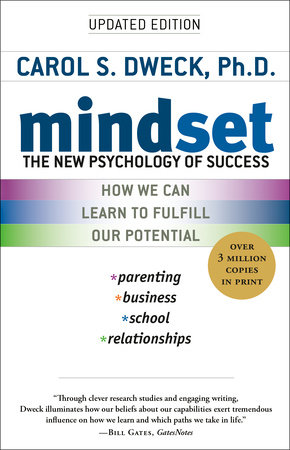📖 Biography
Carol Dweck’s research has fundamentally altered our understanding of human potential and learning. Her work on mindset theory provides leaders with powerful tools for fostering growth, resilience, and innovation within their organizations and themselves.
The Mindset Revolution
Dweck’s most significant contribution to leadership thinking is her distinction between two fundamental mindsets:
Fixed Mindset
- Believes abilities, intelligence, and talents are fixed traits
- Focuses on proving oneself rather than improving
- Avoids challenges to maintain appearance of competence
- Views failure as evidence of inadequacy
- Threatened by others’ success
Growth Mindset
- Believes abilities can be developed through effort and learning
- Focuses on improvement and mastery
- Embraces challenges as opportunities to learn
- Views failure as information and motivation to improve
- Inspired by others’ success
Leadership Applications
Talent Development
Leaders with growth mindsets create environments where:
- Employees are encouraged to take on challenging projects
- Mistakes are treated as learning opportunities
- Development is prioritized over immediate performance
- Potential is seen as unlimited rather than predetermined
Feedback Culture
Growth mindset leaders revolutionize how feedback is given and received:
- Focus on effort and strategy rather than just outcomes
- Provide specific, actionable guidance for improvement
- Create psychological safety for admitting mistakes
- Celebrate learning and growth over perfection
Innovation and Risk-Taking
Organizations led with growth mindset principles show:
- Higher levels of innovation and creativity
- Greater willingness to experiment and iterate
- More resilient response to failure and setbacks
- Stronger collaborative cultures
The Science Behind the Theory
Dweck’s work is grounded in rigorous psychological research spanning decades. Her studies have shown that:
- Students praised for intelligence become less likely to take on challenges
- Those praised for effort and strategy show increased motivation and performance
- Organizations that promote growth mindset see improved employee engagement
- Leaders can shift from fixed to growth mindset with intentional practice
Modern Organizational Impact
Corporate Culture
Many Fortune 500 companies have integrated growth mindset principles into:
- Performance review systems
- Leadership development programs
- Hiring and promotion criteria
- Company values and mission statements
Dweck’s work has influenced educational systems worldwide, changing:
- How teachers provide feedback to students
- Approaches to standardized testing and assessment
- Professional development for educators
- Parent-teacher communication strategies
The Leadership Mindset
For leaders, adopting a growth mindset means:
- Embracing challenges as opportunities for the team to grow
- Persisting through obstacles and modeling resilience
- Learning from criticism and encouraging open feedback
- Finding inspiration in team members’ success
- Viewing effort as the path to mastery and achievement
Contemporary Relevance
In today’s VUCA (Volatile, Uncertain, Complex, Ambiguous) business environment, growth mindset leadership is essential for:
- Navigating rapid technological change
- Building adaptive, learning organizations
- Attracting and retaining top talent who value development
- Creating cultures of innovation and continuous improvement
- Leading through failure and uncertainty with resilience
Dweck’s research provides a scientific foundation for what great leaders have always known intuitively: that believing in people’s potential to grow and improve creates the conditions for extraordinary performance and innovation.
Carol Dweck's research on mindset has fundamentally changed how leaders approach talent development, feedback, and organizational culture. Her work has influenced educational systems worldwide and reshaped how businesses think about employee development, innovation, and resilience.
Growth mindset framework essential for modern leaders fostering innovation, resilience, and continuous learning cultures.




